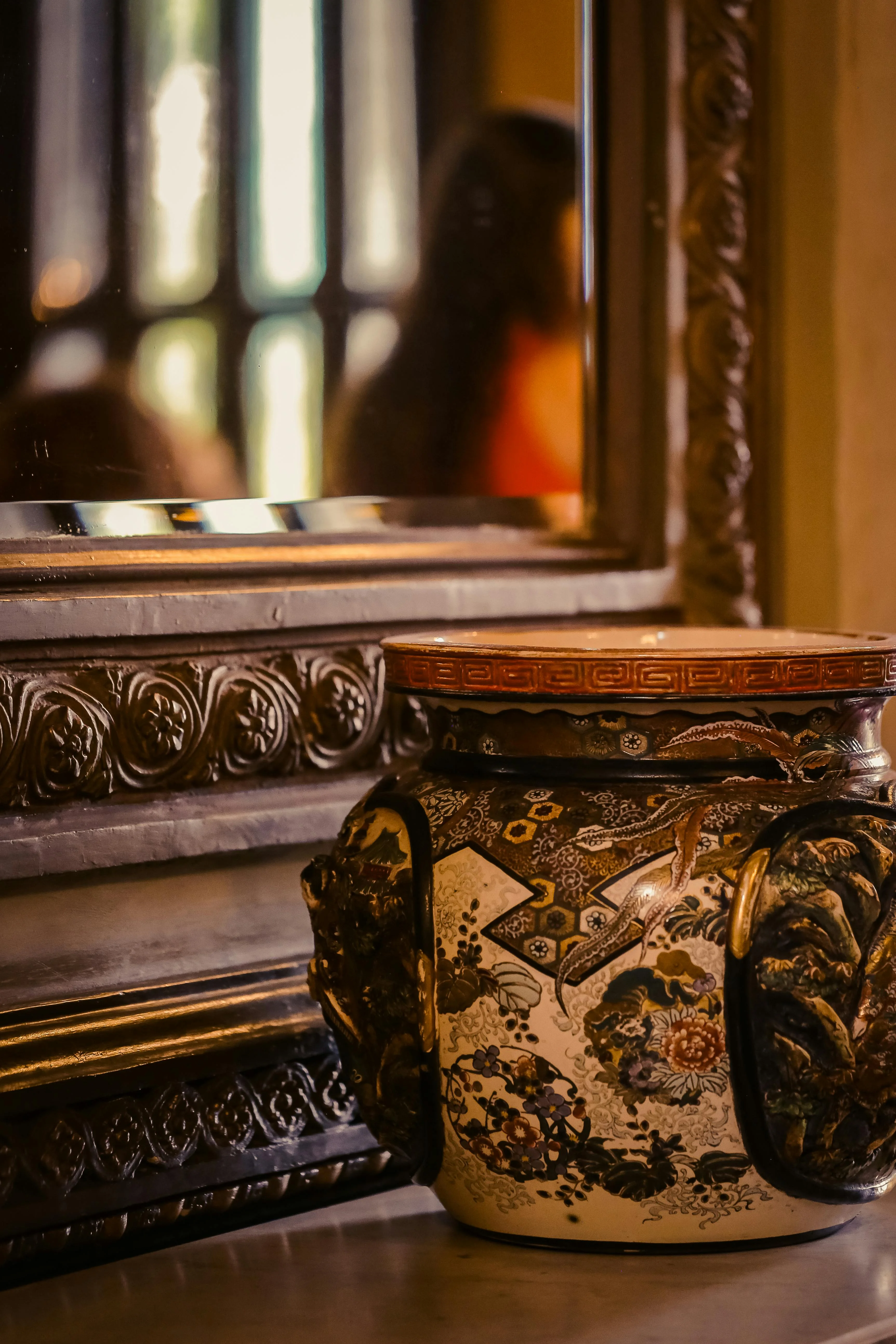Blog » Common Myths & Misconceptions About Cremation

When considering end-of-life arrangements, it's crucial to address common myths and misconceptions about cremation that can create unnecessary confusion and stress. This article addresses common myths & misconceptions about cremation, clarifying the truth to help families make informed decisions. By debunking prevalent myths and providing clear, factual information, we aim to offer a deeper understanding of cremation services. Families deserve to know the realities behind this dignified option, ensuring they can make choices that best honor their loved ones' wishes and values.
Cremation Myths
Many myths surround cremation, often fueled by misinformation or cultural biases. These myths can range from concerns about the environmental impact to misconceptions about the process itself. By addressing these myths head-on, we can provide a clearer picture of what cremation truly involves.
Misconceptions About the Environmental Impact of Cremation
One prevalent myth is that cremation harms the environment. While it's true that cremation does release some emissions, modern crematories use advanced technologies to minimize environmental impact. Additionally, cremation avoids the use of embalming chemicals, which can contaminate soil and groundwater.
Key Points:
- Modern crematories use advanced emissions control.
- Cremation often has a lower environmental footprint than traditional burials.
- Embalming chemicals and non-biodegradable materials are not used in cremation.
- Cremation reduces land use and the need for cemetery space.
- Crematories are continually improving practices to further lessen environmental impact.
Understanding the Cremation Process
A common misconception is that the cremation process feels impersonal or undignified. However, cremation can be a deeply personal and respectful process. Furthermore, families have many options to make the cremation process feel more intimate and significant.
Key Points:
- Families can hold services before or after the cremation.
- Numerous options exist for memorializing the ashes.
- Options include scattering, urns, and keepsakes.
- Many crematories offer witnessing services where families can be present.
- Customizable urns and keepsakes can reflect the deceased’s personality and life.
- Cremation can be part of a larger celebration of life ceremony.
Cremation and Religious Beliefs
Another myth is that many religions do not allow cremation. While some faiths have specific guidelines, many religions either permit it or leave the decision up to the individual. It's essential to consult with religious leaders to understand your faith's stance on cremation.
Key Points:
- The Catholic Church has accepted cremation since 1963.
- Most Protestant denominations permit cremation.
- Hinduism and Buddhism have long traditions of cremation.
- Judaism traditionally prefers burial, but some liberal movements accept cremation.
- Islam typically prohibits cremation, yet individual beliefs may vary.
- Personal faith and interpretation often play significant roles in the decision.
The Cost of Cremation
Many people believe that cremation is significantly cheaper than traditional burial. While it can be more cost-effective, the final cost depends on various factors, including the type of service, the crematory's fees, and additional memorial products.
Key Points:
- Cremation often involves fewer expenses than burial.
- Costs vary based on the type of service and additional products.
- Simple Cremation USA offers transparent pricing.
- Direct cremation without a service is usually the most affordable option.
- Additional costs can include urns, keepsakes, and memorial services.
- Payment plans and financing options are available for families in need.
Misconceptions About Cremated Remains
Some individuals are unsure about what to expect regarding the remains after cremation. A myth persists that the ashes are not purely those of the deceased, which is untrue. The cremation process ensures that remains are kept separate and handled respectfully.
Key Points:
- Each individual is cremated separately.
- Regulations ensure remains are handled with care.
- Ashes are entirely those of the deceased.
- Cremated remains are processed to create a uniform appearance.
- Families receive all of their loved one’s ashes, without mixing.
- Crematories follow strict guidelines to maintain the dignity of the remains.
Choosing Cremation Over Burial
Choosing cremation over burial is often seen as a more modern or less traditional choice. This decision is deeply personal and influenced by various factors. Each family's needs and preferences will guide this choice.
Key Points:
- Personal beliefs and family traditions play a role.
- Environmental considerations may influence the decision.
- Cremation allows for various meaningful memorial options.
- Families can plan unique and personalized memorial services.
- Cremation can offer more flexibility with timing and location.
- The choice between cremation and burial reflects personal values and practical concerns.
The Flexibility of Cremation Services
Cremation offers unparalleled flexibility, which is often overlooked. Unlike traditional burial, cremation allows families more time to plan a meaningful ceremony or memorial service. This flexibility can be particularly helpful for families spread across different locations or those needing more time to gather and grieve.
Key Points:
- Flexibility in timing for memorial services.
- Options for diverse memorialization practices.
- Convenience for families spread across different locations.
- Ability to plan services that reflect the deceased's life and personality.
- Cremated remains can be transported more easily than a casket.
- Families can choose to hold multiple memorial events if desired.
Handling the Ashes
A common concern is what to do with the ashes after cremation. Options abound, from keeping the ashes in an urn at home to scattering them in a meaningful place. Families can find unique and personal ways to honor their loved ones.
Key Points:
- Options include urns, scattering, and keepsakes.
- Personalized memorials can be created.
- Simple Cremation USA provides guidance on options.
- Ashes can be incorporated into jewelry or art.
- Scattering gardens and memorial reefs offer eco-friendly options.
- Families can divide ashes among multiple keepsakes for sharing.
Legal Requirements for Cremation
Many people are unaware of the legal requirements associated with cremation. Each state has specific regulations regarding the process, including necessary permits and waiting periods. Understanding these requirements can demystify the process and ensure everything is handled smoothly and legally.
Key Points:
- Understanding state-specific regulations.
- Necessary permits and waiting periods.
- Legal compliance ensures a smooth process.
- Families must provide documentation and authorization.
- Regulations ensure respectful and ethical handling of remains.
- Crematories follow strict state and federal guidelines.
Cremation and Grief
There is a misconception that cremation can complicate the grieving process. However, cremation does not diminish the significance of memorialization. Instead, it can provide more opportunities for personal and meaningful tributes, allowing families to honor their loved ones in ways that feel most appropriate to them.
Key Points:
- Cremation can offer more personal memorial options.
- Flexible memorial services can aid in the grieving process.
- Families can choose what feels most appropriate.
- Memorial services can be tailored to reflect the deceased’s life.
- Cremation can create a focal point for remembrance.
- Ongoing memorial activities can help families cope with grief.
Cremation Myths Busted
By debunking these common myths and misconceptions about cremation, we can help families make informed decisions. Understanding the truth about cremation services allows individuals to consider all their options without the influence of misinformation or cultural biases.
Key Points:
- Accurate information helps in making informed choices.
- Dispelling myths provides clarity.
- Simple Cremation USA supports families with truthful information.
- Families can make confident decisions about end-of-life arrangements.
- Clear understanding prevents unnecessary stress and confusion.
- Knowledge empowers families to honor their loved ones in meaningful ways.
Going Forward…
Cremation is a dignified and flexible option for end-of-life arrangements, offering numerous benefits over traditional burial. By dispelling common myths and misconceptions, we can provide a clearer understanding of what cremation entails. Simple Cremation USA is committed to offering compassionate and informed services to help families navigate this important decision with confidence and peace of mind.
Recent Blog Posts
- The Heart Behind Every Word: Why Our Families’ Stories Mean So Much
- Affordable Cremation, Meaningful Goodbyes: How to Honor Life Without Financial Strain
- More Than Mourning: A Tribute to a Life Well Lived
- Go figure! Instagram and Facebook for Cremation Services
- The History of Cremation: From Ancient Rituals to Modern Choices
- What to Do When a Loved One Passes Away at Home
- Ashes in Pop Culture: How Cremation is Portrayed in Movies & TV
- Healing Through Green: How Plants Support Mental Health and the Grieving Process
- Eco-Friendly Cremation and Burial Options
- Direct Cremation in South Carolina and Why Families Prefer This Option
